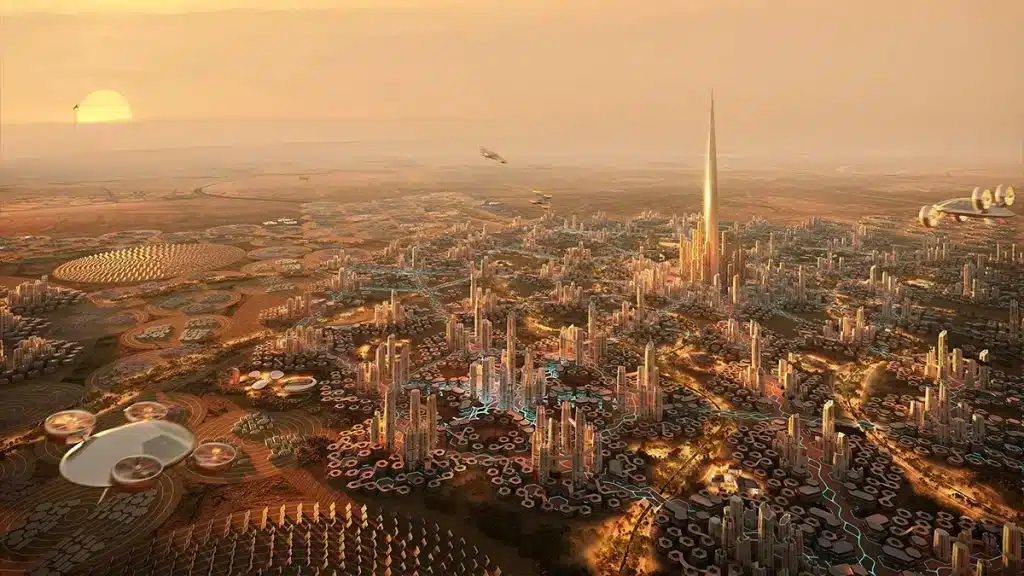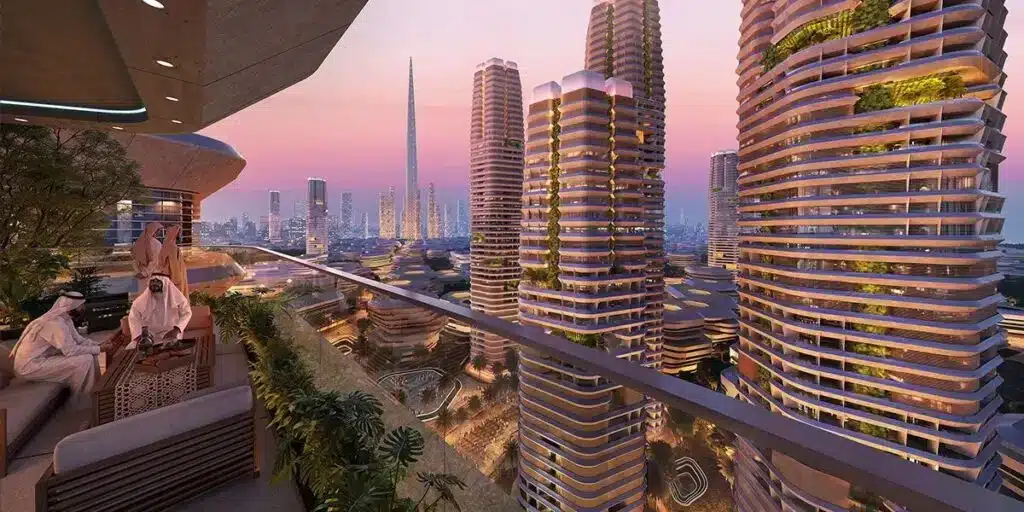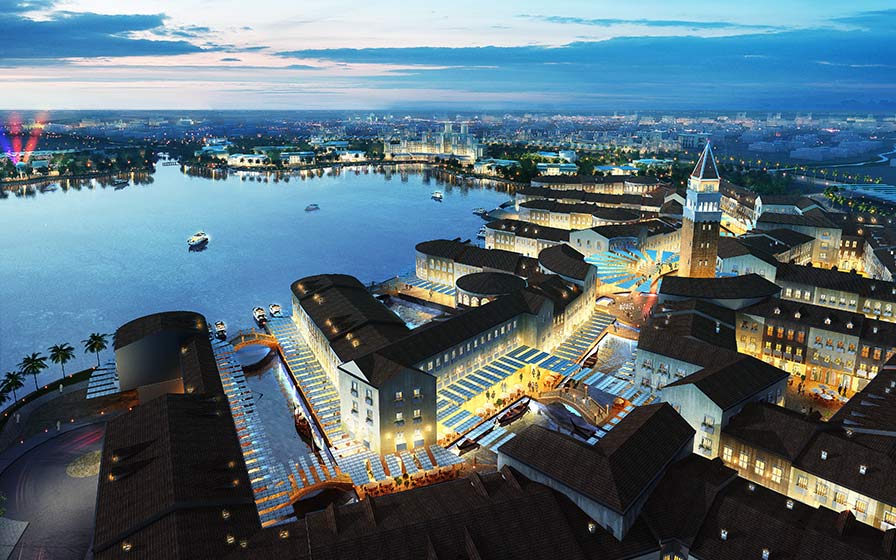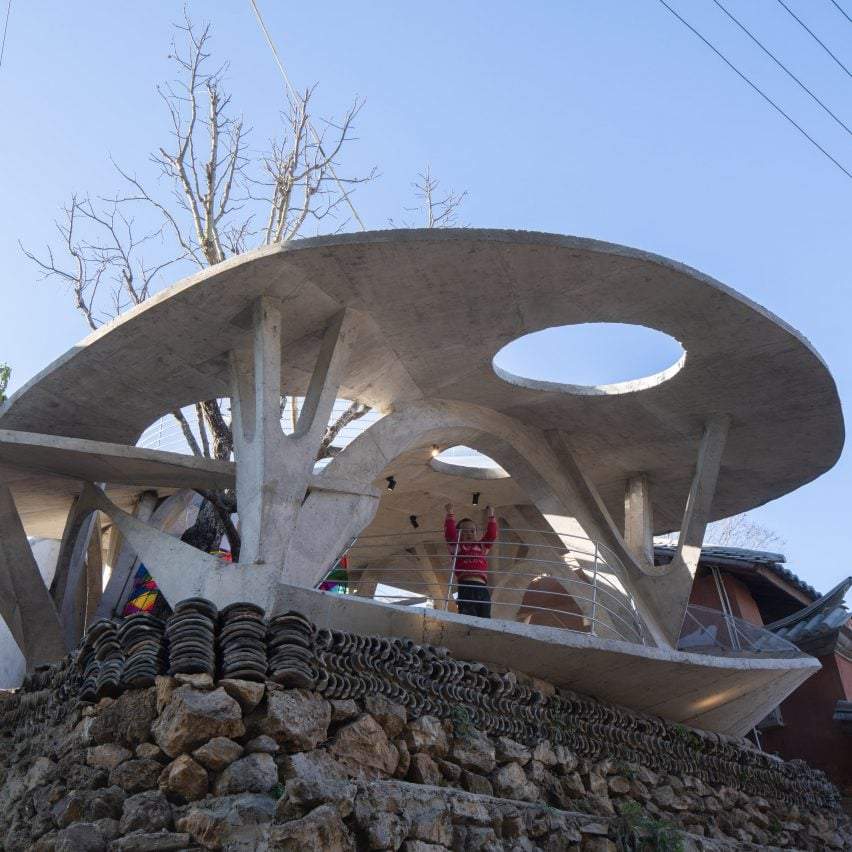Riyadh’s North Pole Project: A New Urban Vision
In a significant step within the framework of Saudi Arabia’s Vision 2030, Riyadh has launched its North Pole Project , an ambitious urban development initiative aimed at transforming underutilized areas in the northern part of the city into a modern, integrated community. The project aligns with broader national efforts to support rapid urban growth while improving quality of life and sustainability.
This article will explore:
- Overview of the North Pole Project : Location, objectives, and key components.
- Urban Development and Sustainable Growth : How the project contributes to Riyadh’s long-term vision.
- Expected Challenges : Environmental, organizational, and social hurdles.
- ArchUp Opinion : A critical analysis and personal perspective on opportunities and risks.

Overview of the North Pole Project
The North Pole Project is located in the northern districts of Riyadh and aims to convert previously agricultural or industrial land into a fully developed residential and service-oriented urban zone. The initiative includes large-scale housing developments, infrastructure upgrades, and the creation of public facilities tailored to meet the needs of growing communities.
Key components of the project include:
| Component | Description |
|---|---|
| Residential Units | Thousands of housing units including apartments, villas, and semi-detached homes |
| Public Facilities | Schools, health centers, mosques, and recreational spaces |
| Infrastructure | Road networks, electricity, water, and sewage systems |
| Green Spaces | Parks and open areas for family activities and community engagement |
According to the Ministry of Municipal and Rural Affairs and Housing:
“New urban projects prioritize comprehensive development principles that ensure high-quality services, improved living conditions, and environmental sustainability.”

Urban Development and Sustainable Growth
The North Pole Project plays a vital role in balancing population growth with sustainable infrastructure planning. It supports the objective of creating livable, connected, and environmentally responsible neighborhoods across Riyadh.
The project will incorporate several sustainability features, including smart irrigation systems to reduce water consumption in arid conditions, the integration of solar energy in buildings and public lighting, and the application of green building standards to minimize energy use and carbon footprint.
- Smart irrigation systems to reduce water consumption in arid conditions.
- Solar energy integration in buildings and public lighting.
- Green building standards to minimize energy use and carbon footprint.
By focusing on these elements, the project can serve as a model for future urban expansion in similar climate zones across the country.
Expected Challenges
Despite its promising outlook, the North Pole Project must overcome several challenges that require careful management throughout implementation.
- Environmental Constraints : The northern region of Riyadh experiences extreme heat and limited rainfall, requiring innovative solutions for water conservation and energy efficiency.
- Coordination Between Agencies :Several government agencies, including the Riyadh Region Municipality, the Royal Commission, and the Ministry of Housing, play a role in planning and executing the project. Without strong coordination, their involvement may cause delays or create conflicting priorities.
- Service Delivery Gaps : A potential challenge is that essential services such as schools and clinics might not open at the same time as housing, which could leave new residents dissatisfied.

ArchUp Opinion
From an analytical standpoint, the North Pole Project represents a valuable opportunity to shape the future of Riyadh’s urban landscape. However, caution should be exercised to avoid common pitfalls seen in past large-scale developments.
First , there is a concern that the emphasis might fall more on the quantity of housing units rather than the quality of urban design , especially regarding public spaces, walkability, and accessibility.
Second , lessons from previous projects suggest the need for transparent timelines and accountability mechanisms to ensure that infrastructure and essential services are completed alongside residential components.
Third , this project could become a pilot for smart city initiatives , integrating data-driven planning tools to manage traffic, utilities, and emergency services more efficiently.
If executed thoughtfully, the North Pole Project could redefine how new urban areas are planned and implemented in Saudi Arabia.

Frequently Asked Questions (FAQ)
| Question | Answer |
|---|---|
| Where is the North Pole Project located? | In the northern part of Riyadh. |
| What are the main components of the project? | Residential units, public services, infrastructure, and green spaces. |
| Will educational and healthcare facilities be included? | Yes, schools and medical centers are part of the development plan. |
| Which government agencies are managing the project? | Multiple entities including Riyadh Region Municipality and the Ministry of Housing. |
| Is there a clear timeline for completion? | No official date has been announced yet, but planning and initial development have begun. |

Summary Table of Key Information
| Aspect | Details |
|---|---|
| Project Name | North Pole Project |
| Location | Northern districts of Riyadh |
| Objectives | Develop a well-connected, self-sufficient urban community; support population growth |
| Components | Housing, infrastructure, public services, parks |
| Main Challenges | Arid climate, inter-agency coordination, timely delivery of services |
| Strategic Outlook | Promote smart and sustainable urban planning |
| ArchUp Perspective | Great potential if executed with focus on quality, transparency, and community-centered design |







